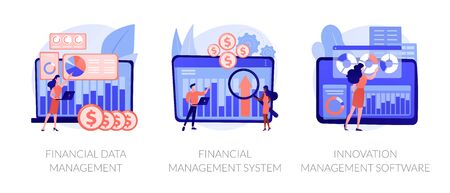1. Introduction to Crypto Mining and Taxes
Cryptocurrency mining is a process where individuals or businesses use computer hardware to validate transactions on a blockchain network. In return for their efforts, miners receive rewards in the form of newly minted cryptocurrency and transaction fees. While this may sound like an easy way to earn digital assets, it’s important to understand that mining income is subject to taxation in the United States.
What Is Cryptocurrency Mining?
Cryptocurrency mining involves solving complex mathematical problems using computational power. Miners play a crucial role in securing blockchain networks by verifying transactions and adding them to the public ledger. The most well-known cryptocurrency that relies on mining is Bitcoin, but other proof-of-work (PoW) cryptocurrencies also require mining.
How Does Crypto Mining Generate Income?
Mining generates income in two primary ways:
(1) Block Rewards
Miners receive newly minted cryptocurrency as a reward for successfully adding a block of transactions to the blockchain.
(2) Transaction Fees
Miners earn fees from users who pay for their transactions to be processed more quickly on the network.
Why Is Crypto Mining Taxable in the U.S.?
The Internal Revenue Service (IRS) treats cryptocurrency as property, meaning any income earned through mining is considered taxable. Whether you mine as an individual or as part of a business, you are required to report your earnings and pay taxes accordingly.
Types of Taxes Applied to Crypto Mining
| Type of Tax | Description |
|---|---|
| Income Tax | The fair market value of mined coins at the time they are received is considered taxable income. |
| Self-Employment Tax | If mining is conducted as a business, miners may need to pay self-employment tax on their earnings. |
| Capital Gains Tax | If mined crypto is later sold at a higher price, capital gains tax applies on the profit made. |
Understanding how crypto mining is taxed can help miners stay compliant with IRS regulations while optimizing their tax obligations. In the next sections, we’ll explore how to report mining income and strategies for reducing tax liabilities.
2. How the IRS Classifies Crypto Mining Income
The IRS considers crypto mining rewards as taxable income, meaning miners must report their earnings and pay taxes accordingly. However, how the income is classified depends on whether mining is considered a hobby or a business.
Hobby vs. Business Mining
The IRS differentiates between hobby miners and those running a mining business. The classification impacts how income is reported and what deductions can be claimed.
| Category | Hobby Mining | Business Mining |
|---|---|---|
| Definition | Mining done occasionally without intent to make a profit. | A structured operation with intent to generate income. |
| Tax Treatment | Treated as “other income” on tax returns. | Treated as self-employment income, subject to additional taxes. |
| Deductions | No ability to deduct expenses related to mining. | Deductions allowed for equipment, electricity, and other costs. |
| Self-Employment Tax | No self-employment tax required. | Subject to self-employment tax (15.3%). |
| Record-Keeping | No strict requirement but recommended for reporting purposes. | MUST maintain detailed financial records. |
(1) Reporting Hobby Mining Income
If your crypto mining activity is classified as a hobby, you must report the fair market value of your mining rewards at the time you receive them. This amount should be included in your total taxable income on Form 1040 under “Other Income.” However, hobby miners cannot deduct expenses related to their mining activities.
(2) Reporting Business Mining Income
If mining is operated as a business, income is reported on Schedule C of Form 1040. Miners can deduct business-related expenses such as hardware depreciation, electricity costs, and internet fees. However, business miners are also subject to self-employment tax, which covers Social Security and Medicare contributions.
(3) Determining Whether You Are a Hobby or Business Miner
The IRS uses several factors to determine whether your mining activity qualifies as a business:
- Profit Motive: Do you mine with the intention of making a profit?
- Regularity: Is mining a consistent activity or just an occasional endeavor?
- Bussiness-like Operations: Do you keep records and operate in a professional manner?
- Earnings Dependence: Is mining your primary source of income?
If most of these factors suggest that your mining is more than just a casual hobby, it will likely be classified as a business by the IRS.

3. Crypto Mining and Self-Employment Taxes
If you mine cryptocurrency as a business or as a self-employed individual, you may be subject to self-employment taxes in the United States. These taxes primarily include Social Security and Medicare taxes, which are typically withheld from traditional employees paychecks. However, since self-employed miners don’t have an employer to withhold these taxes, they must calculate and pay them on their own.
Understanding Self-Employment Tax
Self-employment tax is designed to cover Social Security and Medicare contributions for individuals who work for themselves. As of 2024, the self-employment tax rate is 15.3%, which consists of:
| Tax Type | Rate |
|---|---|
| Social Security Tax | 12.4% |
| Medicare Tax | 2.9% |
The Social Security portion applies only to income up to a certain limit ($168,600 in 2024), while the Medicare portion applies to all income earned from self-employment.
How Crypto Miners Calculate Self-Employment Tax
(1) Determine Net Profit from Mining
Your net profit is calculated by subtracting allowable business expenses (such as electricity costs, mining equipment depreciation, and maintenance fees) from your total mining income.
(2) Apply the Self-Employment Tax Rate
You will apply the 15.3% self-employment tax rate to your net earnings. However, you can deduct half of this tax when filing your federal income tax return.
(3) Make Quarterly Estimated Payments
If your self-employment tax liability exceeds $1,000 for the year, the IRS requires you to make estimated tax payments quarterly (April 15, June 15, September 15, and January 15 of the following year).
4. Deductible Expenses for Crypto Miners
Mining cryptocurrency comes with various costs, but the good news is that many of these expenses may be tax-deductible. Understanding which costs you can deduct can help lower your taxable income and improve profitability. Below are some common deductions available to crypto miners.
Electricity Costs
Electricity is one of the biggest expenses for crypto miners. Since mining requires significant power consumption, the IRS allows miners to deduct electricity costs associated with their mining activities. However, to qualify for this deduction, you must accurately track and differentiate mining-related electricity use from personal or household consumption.
Mining Hardware
The cost of purchasing and maintaining mining hardware can also be deducted. This includes:
- Mining rigs (ASICs, GPUs, CPUs)
- Cooling systems
- Power supplies
- Cables and networking equipment
The IRS typically considers mining equipment as a capital expense, meaning it may need to be depreciated over time instead of being fully deducted in a single year.
Operational Costs
Apart from electricity and hardware, miners incur other operational expenses that may be deductible, such as:
- Rent or lease payments for dedicated mining spaces
- Internet service fees
- Maintenance and repair costs for mining equipment
- Security measures (hardware wallets, cybersecurity software, etc.)
Software and Cloud Services
If you use specialized mining software or cloud-based mining services, these costs may also be deductible. Some examples include:
- Mining pool fees
- Cloud mining contracts
- Subscription-based monitoring tools
- Software used to manage mining operations
Tax Preparation and Professional Fees
If you hire an accountant or tax professional to assist with crypto tax filings, their fees may also be deductible as a business expense.
(1) Overview of Deductible Expenses
| Expense Type | Description | Deduction Type |
|---|---|---|
| Electricity Costs | The cost of power consumed by mining operations. | Fully Deductible (if properly tracked) |
| Mining Hardware | The cost of purchasing and maintaining ASICs, GPUs, cooling systems, etc. | Depreciated Over Time* |
| Operational Costs | Expenses such as rent, internet fees, and maintenance. | Fully Deductible |
| Software & Cloud Services | The cost of cloud mining services, monitoring software, and pool fees. | Fully Deductible |
| Tax & Legal Fees | The cost of hiring professionals for tax filing and legal consultations. | Fully Deductible |
(1) Important Notes on Deductions
- The IRS may require proof of all expenses, so keep detailed records and receipts.
- *Hardware purchases are typically considered capital expenditures and may need to be depreciated over multiple years instead of deducted all at once.
- If you mine as a hobby rather than a business, your ability to claim deductions may be limited.
Deductions can significantly reduce taxable income for crypto miners. Keeping accurate records and understanding which expenses qualify can help you maximize your tax benefits while staying compliant with IRS regulations.
5. Capital Gains Tax on Mined Crypto
When you mine cryptocurrency, the IRS treats it as income at the time of receipt. However, when you sell, trade, or use that mined crypto, it becomes subject to capital gains tax. Understanding how this works can help you manage your tax liability effectively.
How Capital Gains Tax Applies to Mined Crypto
Capital gains tax applies when you dispose of your mined cryptocurrency. The taxable gain is calculated based on the difference between the fair market value (FMV) when you received the crypto and its value at the time of disposal.
(1) Short-Term vs. Long-Term Capital Gains Tax
The rate at which you are taxed depends on how long you hold the cryptocurrency before selling or using it:
| Holding Period | Tax Rate |
|---|---|
| Less than 1 year (Short-Term) | Taxed as ordinary income (10% – 37%) |
| More than 1 year (Long-Term) | 0%, 15%, or 20% depending on income level |
(2) Triggering a Capital Gains Event
You create a taxable event when you:
- Sell mined crypto for fiat currency like USD
- Trade mined crypto for another cryptocurrency
- Use mined crypto to purchase goods or services
Strategies to Manage Tax Liability
(1) Hold Crypto for Over a Year
If possible, holding onto your mined cryptocurrency for more than a year can significantly reduce your tax rate by qualifying for long-term capital gains rates.
(2) Offset Gains with Losses
If you have other investments that resulted in a loss, you can offset your capital gains with those losses to reduce your overall tax burden.
(3) Use Cryptocurrency for Expenses Strategically
Using your mined crypto for purchases may trigger taxes. Plan your spending carefully to avoid unnecessary tax liabilities.
(4) Consider Mining Through a Business Entity
If mining at scale, structuring operations as a business may provide additional deductions and strategic advantages.
By understanding how capital gains tax applies to mined cryptocurrency and using smart strategies, miners can optimize their tax situation while staying compliant with IRS regulations.


